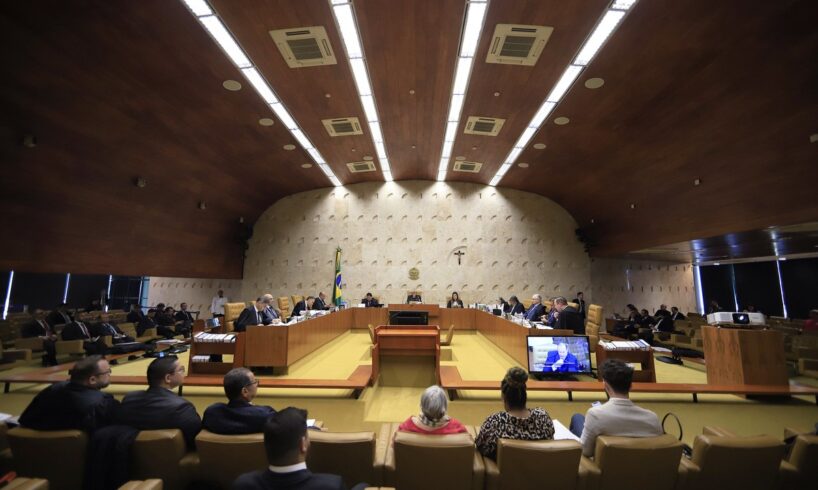
The race to fill the seat vacated by Supreme Court Justice Luís Roberto Barroso has narrowed to two names: Jorge Messias, 45, Brazil’s attorney general, and Senator Rodrigo Pacheco (Social Democratic Party, PSD, of Minas Gerais). Broadly speaking, Mr. Messias enjoys stronger backing from the Executive branch, while Mr. Pacheco is favored within the Senate and the Supreme Court itself.
If the decision depended solely on institutional balance among the branches of government, the score would be 2-1 for Mr. Pacheco. But the choice rests entirely with President Lula. In addition to his evangelical faith, Mr. Messias benefits from a long-standing personal relationship with Mr. Lula, dating back to the Dilma Rousseff administration, when he headed the influential Legal Counsel Office of the Presidency.
Mr. Messias, known by the nickname “Bessias” after appearing in a wiretapped conversation released during the Car Wash investigation, was tasked by Ms. Rousseff with delivering Mr. Lula’s appointment letter to the Chief of Staff Office in 2016, at a time when then-judge Sergio Moro was preparing to order his arrest. The move was an attempt to bring Mr. Lula into the cabinet to shield him politically and stabilize the Rousseff administration, which was on the brink of impeachment. The letter was never used because Justice Gilmar Mendes blocked the appointment, the same Mr. Mendes who now stands as one of Mr. Pacheco’s main supporters in the current dispute.
History thus brings face to face the two figures linked to that episode: the messenger who carried the appointment letter and the justice who prevented it.
Mr. Messias’s allies question why Mr. Lula would bypass his own lawyer in favor of the Senate’s lawyer. Supporters of Mr. Pacheco, in turn, highlight the political weight of Senator Davi Alcolumbre (Brazil Union of Amapá), who backs Mr. Pacheco and plays a decisive role in confirming presidential nominees. They also note Mr. Lula’s potential difficulty in securing Senate approval for another close associate, after the confirmation of Cristiano Zanin, his former defense lawyer during the Car Wash probe.
Some in Brasília argue that it may now be Mr. Alcolumbre’s turn to reap the rewards of his loyalty after repeatedly blocking moves by the Chamber of Deputies against the Lula administration. Yet Mr. Alcolumbre has already accumulated a long list of victories in government appointments, from regulatory agencies to high-level posts.
One factor weighing against Mr. Messias is that he would be the second attorney general nominated by Mr. Lula—the first was Dias Toffoli, from whom the president has since distanced himself. For Mr. Pacheco, the downside is that Mr. Lula would prefer to see him run for governor of Minas Gerais in 2026 rather than move to the court.
With this appointment, Mr. Lula will have nominated five of the court’s 11 justices. Cármen Lúcia was appointed at the end of his first term, in 2006; Mr. Toffoli followed in 2009, at the close of his second term; Cristiano Zanin joined in 2023; and Flávio Dino, his former Justice Minister, in 2024. Michel Temer appointed Alexandre de Moraes in 2017; Ms. Rousseff named Edson Fachin, Luiz Fux, and Mr. Barroso; Jair Bolsonaro selected Kassio Nunes and André Mendonça; and Fernando Henrique Cardoso appointed the court’s most senior justice, Gilmar Mendes.
Although Mr. Barroso had hinted in recent months that his retirement was imminent, giving several interviews and speeches reflecting on his career, the announcement came sooner than expected. Still, there is no indication that the timing will push Mr. Lula into a rushed decision, even amid strained relations with Congress.
Supreme Court in session for one of the January 8 coup attempt cases — Foto: Rosinei Coutinho/SCO/STF
Source





